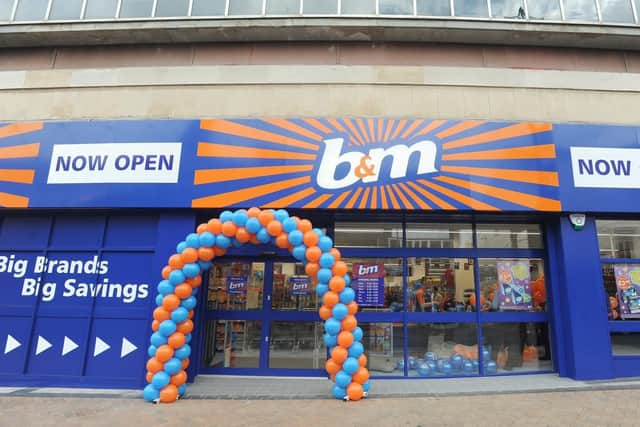Fylde coast founded discount store owners in £234m shares sale
and live on Freeview channel 276
An investment company linked to Simon and Bobby Arora said that it had made £234m selling just 4 per cent of B&M’s shares on Friday.
It reduces the holding of SSA Investments in the company to 7 per cent, at a time when shares are at their highest point since the company listed eight years ago.
Advertisement
Hide AdAdvertisement
Hide AdThe Arora brothers bought what was then a struggling local supermarket chain in 2004 and transformed it.


It had been founded in 1978 as Billington and Mayman in Cleveleys, but never expanded hugely until the brothers took over.
In October, the chain opened a new store on the Fylde coast, off Holyoake Avenue in Bispham, creating 50 jobs. It was B&M's 27th in Lancashire.
In 2020, its warehouse staff based in the former Wellington Bomber factory sheds at Squires Gate were told the site was to close and work moved to Liverpool. The site is now owned by the billionaire Issa brothers from Blackburn who founded Euro Garages and who also own Asda.
Advertisement
Hide AdAdvertisement
Hide AdBased offshore in Luxembourg, but with its distribution centre in Liverpool, B&M now has more than 685 stores and employs more than 35,000 people. It targets areas where it can rent shops cheaply.
It is the second time the brothers have sold a major stake in the business since it listed. In 2017 they exchanged a quarter of their shares in B&M in a payday that saw them pocket £215m.
A year ago it was disclosed that the brothers had received dividends worth close to £100m in a year when the pandemic ripped through the retail sector.
The company was allowed to keep its shops open during lockdowns, they were considered essential.
Advertisement
Hide AdAdvertisement
Hide AdDespite this the company initially accepted business rates relief that was meant to prop up struggling retailers.
Under public pressure, and following the lead of other retailers who stayed open during the pandemic, B&M said that it would pay its rates.
Listed companies had come under particularly high pressure when they paid dividends to shareholders before returning their rates relief to the Treasury.